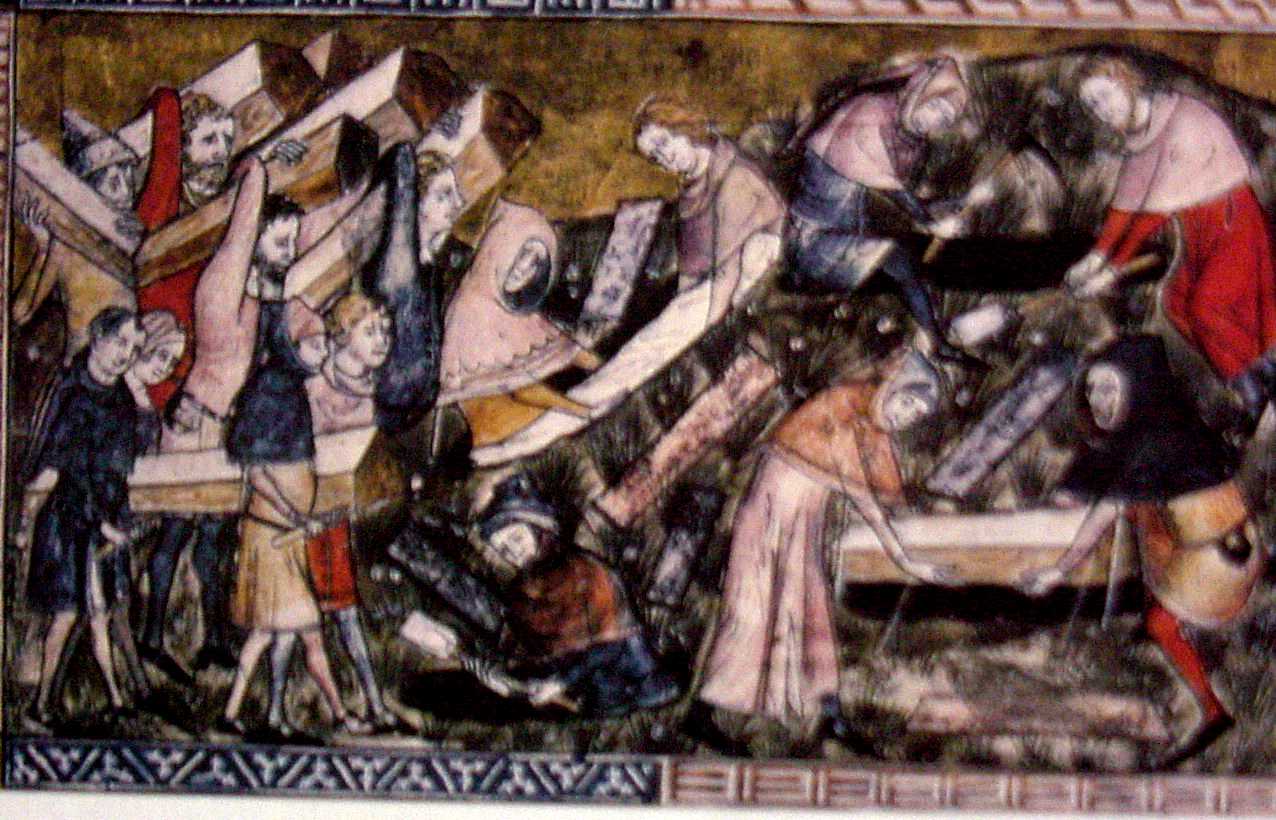
Week 3: Wealth and Death
 |
DISCUSSION GROUP
Week 3: Wealth and Death |
These are the issues you should think about this week:
1. What were the consequences of population growth in
the period prior to the Black Death?
2. What do modern scholars know about the Black Death?
3. How did contemporaries explain the advent of the Black
Death?
4. What implications does this have for how we read what
contemporaries recorded?
5. Why did governments seek to control wages in response
to the Black Death?
6. What are the implications of the changing distribution
of wealth that followed the Black Death?
The documents are most obviously concerned with questions 3, 4, 5 and (to a lesser extent) 6. They have little obviously to say about questions 1 and 2.
The Statute of Labourers (1351) [document number 112] represents a revision of the earlier Ordinance of Labourers (1349) -- you can find this if you want at document 98 -- and is but one example of a very widespread pattern of legislative response across Western Europe. (The Ordinance was issued when Parliament was not in session because plague was still rampant. A statute represents legislation that has been approved by Parliament.)
The Statute begins with a paragraph explaining the reasons for the measures that follow. This is called the preamble. It throws some light on the thinking behind legislation. 'It was lately ordained ...' refers to the earlier Ordinance of Labourers. Look carefully at the ideas and the language used here. Where might this language come from? What is it trying to do? Why are the wage levels referred to described as 'accustomed'?
In general the Statute talks about 'accustomed' wages and only specifies a few specific tasks and their associated rates of pay. Why these? What is the significance of references to food being given alongside money wages?
How does the Statute seek to curb wages? Why the clauses about mobility? What problems can you imagine may have resulted from the operation of the Statute?
Document 113 relates strictly to a prosecution under the earlier Ordinance, but is an example of the law in action (as opposed to in theory). What light does it throw on the labour market in the immediate aftermath of the Black Death? What are the implications of William talking about his ancestors? Why should the priory have leased out the manor? Why do the justices reject Peter's petition?